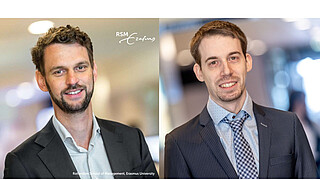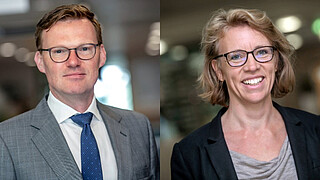Developing efficient mitigations
Dr Antonia Krefeld-Schwalb from RSM’s Department of Marketing Management will receive € 320,000 for her project Heterogeneous Treatment Effects of Behavioral Interventions Towards Climate Change Mitigation and Adaptation. It focuses on people making changes to their own behaviour in order to adapt to climate change, and the failure of interventions to generate large-scale and long-term behavioural changes so far. “It’s of the utmost importance to develop more efficient interventions to induce change towards climate change mitigation and adaptation,” she said. She has invited members of the public to contribute to the research by describing their own sustainable behaviour via this link: https://sustainability.rsm.nl/4k-steps
Dr Krefeld-Schwalb’s research proposal aims to make interventions towards sustainability more effective by:
- Identifying the reasons why people act sustainably, which may have little to do with the environmental impact;
- finding reliable predictors for what reasons matter most to each person;
- and designing and testing customised interventions in real-world settings.
Her research combines knowledge from cognitive science and economics, and puts them into action to generate societal impact.
Giving people control of their data
Assistant Professor Sameer Mehta from RSM’s Department of Technology and Operations Management has been given € 320,000 for his project Empowering Individuals in the Digital Economy: A Bottom-Up Approach to Designing an Ethical, Privacy-Preserving, and Viable Data Ecosystem.
His project seeks an innovative shift by exploring bottom-up data governance, which will empower individuals through collaborative data institutions. “Present-day businesses wield enormous economic power by controlling the personal data of individuals. This dominance is driven by top-down data governance in which firms decide the terms of using personal data. My goal is to design a better data ecosystem that will empower individuals by giving them meaningful control over their data and also help businesses unlock value by allowing them to obtain and use consented data ethically.”
Dr Sameer Mehta’s project will study:
- the economic incentives that enable the formation of bottom-up data institutions
- how businesses should engage with such institutions, and
- how business-to-business data sharing can promote the adoption of these institutions.
The concept of bottom-up ‘data’ institutions is relatively new and not yet studied in-depth, even though there is plenty of research on traditional bottom-up institutions such as agricultural cooperatives, labour unions, and commercial trusts.
“Data is an ‘information good’ that’s distinct from other goods. It costs almost nothing to replicate, and the data from one individual can actually reveal information about other similar individuals. And there are privacy and security concerns associated with it. These novel features create a unique set of challenges and opportunities for the analysis. The results will contribute to cooperative game theory, the literature on mechanism design, and co-opetition [cooperation and competition] games for bottom-up data governance,” he explained.














